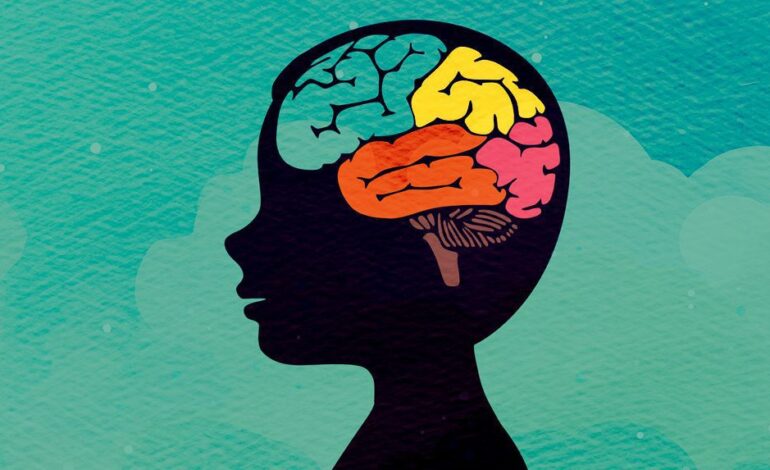
In today’s fast-paced world, finding moments of stillness and clarity can feel like a luxury. Mindfulness, a practice rooted in ancient traditions, has emerged as a powerful tool for navigating the complexities of modern life. Beyond its immediate calming effects, research suggests that mindfulness can profoundly impact the brain, leading to a host of cognitive and emotional benefits.
The Mindful Brain: Rewiring for Resilience
Gray Matter Density and Cognitive Enhancements
Delving into the science, studies have shown that regular mindfulness practice leads to an increase in gray matter density. This phenomenon primarily occurs in regions associated with memory, learning, and compassion, such as the hippocampus. This growth translates to improved cognitive functions.
In a study published by Frontiers in Human Neuroscience, researchers from Harvard Medical School found that participants who underwent eight weeks of mindful meditation training showed larger increases in gray matter density than those in a control group who did not receive any intervention at all. The researchers also discovered that these participants had improved working memory capacity and attention after completing their training program.
Taming the Amygdala: A Stress-Reducing Technique

The amygdala is what we call an “emotion detector.” It’s responsible for helping us react quickly to danger by triggering a fight-or-flight response. You may have heard that the amygdala is also involved in long-term memory formation — but did you know that it also plays a role in how we perceive and respond to stress?
When we experience a stressful situation, our bodies produce the hormone cortisol, which is released from the adrenal glands above each kidney. This hormone helps us manage stress by increasing heart rate, blood pressure and blood sugar levels — all of which help us react quickly to danger. But chronic stress can lead to high cortisol levels that stay elevated for long periods of time, which has been linked with anxiety disorders like PTSD as well as depression and cardiovascular disease. Mindfulness practice has been linked with reduced amygdala activity, equating to lower stress levels and enhanced emotional regulation.
Prefrontal Cortex: The Executive Command Center
The prefrontal cortex is the most recently evolved region of the brain and the one that distinguishes humans from other animals. It is responsible for complex thought, planning, decision making and problem solving. The prefrontal cortex also regulates emotions, which enable us to feel good or bad about ourselves and others.
Mindfulness stimulates the prefrontal cortex, which is responsible for executive functions like emotional regulation and self-control. Increased activity in this region empowers individuals to navigate their emotions more effectively.
Sharper Focus, Enhanced Attention: The Mindful Advantage
Mindfulness meditation is a form of mental training that helps people to take a step back from their thoughts and emotions. This allows them to become more aware of the present moment in a non-judgmental way.
The Default Mode Network (DMN) is an interconnected network of brain regions that are more active when the mind is at rest. It is thought to be responsible for our internal narrative — our thoughts about ourselves and the world around us.
A study by researchers at UC Berkeley found that when people meditate, their DMN becomes less active, which means they spend less time thinking about themselves and their problems. They also show greater cognitive flexibility — being able to switch between different tasks or concepts — compared with people who don’t meditate regularly.
Body and Mind Connection: Heightened Awareness
Insula Activation: Listening to Your Body’s Wisdom
The insula, responsible for interoception or body awareness, becomes more active with mindfulness practice. This heightened awareness allows individuals to attune to their bodily sensations, fostering a deeper connection between body and mind. In addition, the insula is also connected to emotional regulation, allowing one to recognize and respond to emotions as they arise.
A recent study showed that participants who received mindfulness training showed greater activation in their anterior cingulate cortex when trying to suppress unwanted thoughts than those who did not receive mindfulness training (Creswell et al., 2015). This suggests that mindfulness training may help people become more aware of their thoughts and allow them to better control these processes.
Empathy and Compassion: A Ripple Effect

There is growing evidence that mindfulness practices can lead to increased empathy and compassion.
A recent study in the journal Frontiers in Psychology found that a 24-minute meditation intervention increased empathy, compassion, and emotional intelligence. Participants who received the meditation training showed greater activation in areas of the brain associated with emotional processing and social cognition, as compared to participants who received a control intervention.
The study also found that this increase in empathy was linked to self-reported increases in psychological well-being after just one week. This suggests that even short mindfulness interventions may have long-term benefits for both your physical and mental health.
In a world that often demands our attention, mindfulness offers a sanctuary for self-reflection and growth. Through its impact on the brain, mindfulness becomes a powerful tool for navigating stress, enhancing cognitive abilities, and fostering emotional well-being. As the science continues to evolve, the profound benefits of mindfulness practice are becoming increasingly evident, reinforcing its place as a vital practice for a balanced and resilient mind.
Remember, mindfulness is a journey, not a destination. Embrace it with patience and an open heart, and watch as your mind transforms in remarkable ways.
RUCHI RATHOR Founder & CEO
Payomatix Technologies Pvt. Ltd.
FOUNDER AND INVESTOR | PAYMENTS PROCESSING EXPERT | MERCHANT ACCOUNT SOLUTIONS | WHITE LABELLED PAYMENT GATEWAY | Dreamer, Creator, Achiever, Constantly Evolving
Website Ruchi Rathor: https://ruchirathor.com
Website Healing Heart https://thehealingheart.me/
Instagram https://www.instagram.com/ruchirathor/
LinkedIn https://www.linkedin.com/in/ruchirathor12/
Facebook https://www.facebook.com/ruchi.rathor.magnificient
Tumblr https://www.tumblr.com/blog/ruchirathor-thehealingheart
Medium https://medium.com/@ruchirathor_23436









